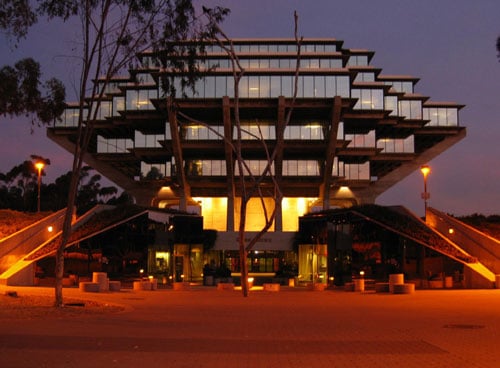Changes include a new Financial Controller job and limits on candidate slates
A.S. Council passed amendments to the standing rules on Jan. 22. The Council’s Bylaws Committee began working on the amendments at the beginning of Fall Quarter 2013.
The constitution was also rewritten and ratified by A.S. Council during Fall Quarter 2013. In order to be confirmed, it must be ratified by four of the six college councils and has been ratified by three so far.
“We realized that there were ways to restructure things to make A.S. more effective,” Bylaws Committee member and A.S. President Andy Buselt said. “We met with folks from each office, proposed some changes, got some feedback from A.S. and got feedback from the College Councils.”
Some of the primary restructuring changes involve reducing the number and rearranging the apportioning of voting members of Council. This would, according to Buselt, minimize inefficiency during Council meetings.
The elected position of Vice President Finance has been replaced by an appointed position: Financial Controller. The primary reasoning for this is that this position requires a specific set of skills that, in the past, elected VPs did not have.
Currently, underneath VP Finances is the position of AVP Student Orgs. This position will be changed to a staff position that is no longer a part of Council: Director of Student Orgs.
“The current VP Student Life will become VP Campus Affairs,” Buselt said. “This position will deal with vendors in Price Center, housing, chairing a senate and working with developers. VP Campus Affairs will now be working on a similar workload as the President and VP External.”
To alleviate the high number of seats on Council, the Bylaws Committee drafted an Academic Representatives Council, a new governing body that the Academic Senators can vote on. They can no longer vote on A.S. Council.
During the Council meeting on A.S., the biggest contention came over whether to have these positions be elected or appointed. Engineering Senator Jerry Narez was concerned that by having these positions be elected, the process could essentially turn into an issue of marketing, appearances and popularity, rather than on the appointment of the best qualified candidate.
AVP Academic Affairs Robby Boparai explained, however, that each Academic Senator is responsible for a division of many majors other than their own area of expertise.
“They represent certain constituencies,” Boparai said. “If they were appointed, there is no way that we could make sure that all 138 majors are represented; by election, you make sure that every student from every major has the opportunity to vote.”
Council voted that the positions would be elected, primarily on the basis that, as voting members on ARC, their constituents deserve to choose them.
In order to address some of the concerns with marketing that Narez expressed, these positions now cannot run for election endorsed by, or endorsing, any slate or any other candidates.
“The maximum of people who can run on one slate now is 11; previously we have had 80-something people on one slate,” Buselt said. “There can still be slates and can still be parties, just on a smaller scale than years prior.”
In addition to trimming Academic Senators from Council voting, the three First-Year Senator positions have been reduced to two. However, there will now be two Transfer Senators instead of one, and there will be an additional two new International Student Senators.
Lastly, the transition process after elections during spring quarter has been made more efficient. Previously, after being elected in Week 2, Council members would have to wait until Week 5 to begin making appointments. Now, while they still must wait that long to officially appoint, they can open applications, interview and begin the process of appointing, in order to allow more time at the end of spring quarter to prepare for the following year.









Daniel • Jan 29, 2014 at 9:14 pm
The limits on the number of candidates who can band together in a single party are unconstitutional. The First Amendment to the U.S. Constitution as well as Article I sections 2 and 3 of the California Constitution protect the right to freely associate, and forbids the government – including its administrative subsidiaries such as the university and the A.S. Council – from infringing on the right to freely associate.
Any candidate disqualified for posting a sign saying “the following 80 candidates have endorsed each other and agreed to run under a single political party called ‘Students First'” could file a lawsuit in San Diego County Superior Court seeking a write of administrative mandamus to force the vice chancellor of student affairs to reinstate the candidates.
Don’t be idiots. Repeal your dumb ban on slates. It’s illegal.